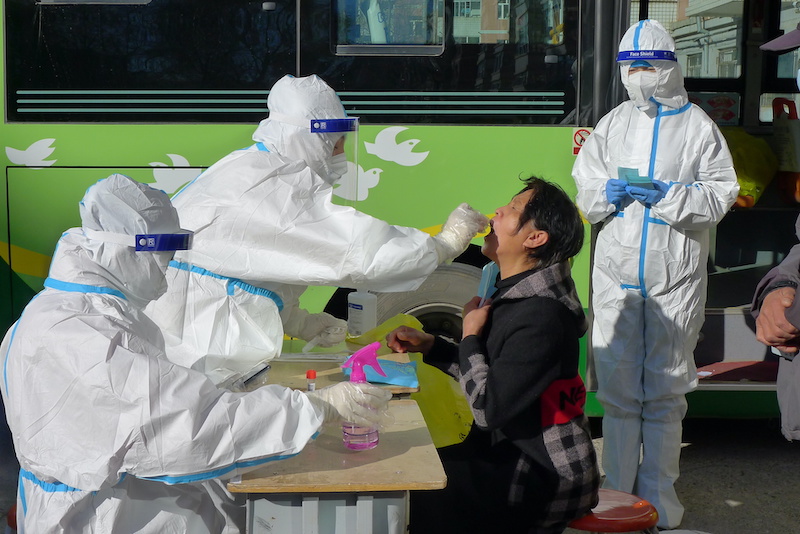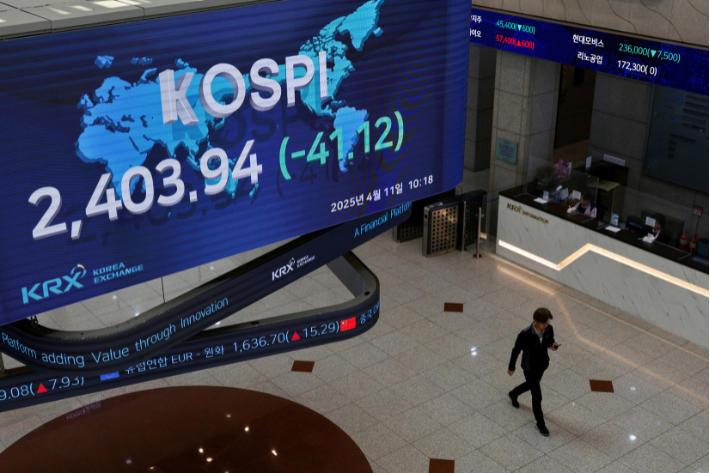Asian and European countries rushed to tighten border and quarantine restrictions on Friday after a new and possibly vaccine-resistant coronavirus variant was discovered in South Africa.
Scientists said the new variant, detected on November 9, has an unusual combination of mutations and may be able to evade immune responses. It could also be more transmissible.
About 100 cases have been detected in South Africa, mostly in Gauteng, its most populated province, plus four cases in Botswana (all foreigners on a diplomatic mission who have left the country), plus two cases in Hong Kong, a traveller from South Africa and a person in a nearby room, along with one in Israel (a traveller returning from Malawi).
News of the new and little-known variant pummelled financial markets, with stocks in Asia suffering their sharpest drop in three months and oil plunging more than 3%.
Swift action by Britain, which banned flights from South Africa, Namibia, Botswana, Zimbabwe, Lesotho and Eswatinitemporarily, spurred a wave of countries in Asia and Europe to ramp up precautions.
Singapore’s health ministry also said it would restrict arrivals from South Africa and nearby countries as a precaution, while Japan also tightened border controls for visitors from South Africa and five other African countries, the Jiji news service reported.
The Indian government, which eased some of its travel restrictions earlier this month, issued an advisory to all states to rigorously test and screen international travellers from South Africa and other “at risk” countries.
Taiwan said travellers from “high-risk” southern African countries would have to go into government-run quarantine facilities for 14 days.
New Zealand Prime Minister Jacinda Ardern said the country was well prepared for the new variant. But New Zealand said earlier this week it would not reopen its borders to fully vaccinated international travellers until April 30.
European Commission chief Ursula von der Leyen said the EU also aimed to halt air travel from the region, while Israeli PM Naftali Bennett said citizens from seven countries (the six listed above and Mozambique) would not be permitted to enter.
WHO Meeting
The World Health Organization (WHO) called a meeting of experts in Geneva at 1100 GMT on Friday to discuss the variant, known as B.1.1.529, and the risks it presents.
South African scientists say some of the mutations are associated with resistance to neutralising antibodies and enhanced transmissibility, but others are not well understood, so its full significance is not yet clear.
The variant has a spike protein that is dramatically different to the one in the original coronavirus that Covid-19 vaccines are based on, the UK Health Security Agency said.
“At this point, implementing travel measures is being cautioned against,” WHO spokesperson Christian Lindmeier told a UN briefing in Geneva. “The WHO recommends that countries continue to apply a risk-based and scientific approach when implementing (curbs).”
Nearly 100 sequences of the variant have been reported, and early analysis shows it has “a large number of mutations” requiring further study, Lindmeier said.
Christmas Concerns
The new wave comes as Europe and the United States enter winter, with more people gathering indoors in the run-up to Christmas, providing a perfect breeding ground for the virus.
European countries had already been expanding booster vaccinations and tightening curbs as the continent battles a fourth wave of the coronavirus, led by the more familiar delta variant, with many countries reporting record daily rises in cases.
Germany reported a new record of more than 76,000 Covid-19 infections in a day as its air force got ready for the first time in the pandemic to fly severely ill patients to other parts of the country to unburden struggling hospitals.
Berlin is likely to declare South Africa as a virus variant area after the detection of the new variant there, a health ministry source said on Friday.
Italy had already imposed an entry ban on people who have visited a group of southern African states, including South Africa, in the last 14 days.
The coronavirus has swept the world in the two years since it was first identified in central China, infecting almost 260 million people and killing 5.4 million.
Asian countries have fared better than other regions in containing the pandemic by enforcing strict preventive measures, rigorous testing and strict border controls.
• Reuters with additional editing by Jim Pollard
This report was updated with further details on November 26 and 27.
ALSO SEE:
New Covid Variant Found in Hong Kong as Shanghai Cuts Tourism
Malaysia Braces For New Covid-19 Wave: Straits Times
























